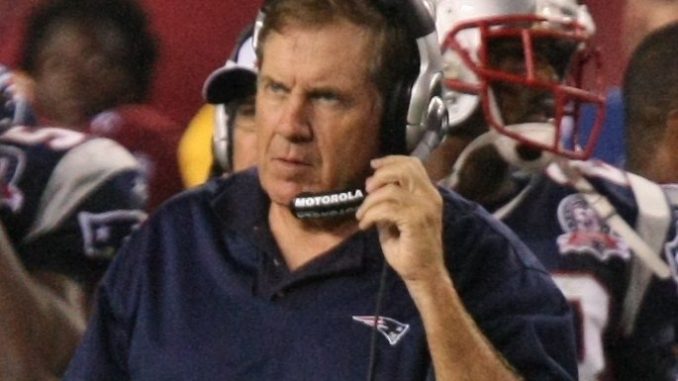
They are the forgotten men and women in organized sports, and yet without them, there would be no sports at all.
Coaches can have a wide range of effects on their team depending on their style, warmth and malleability. However, today it seems that coaches throughout sports just aren’t as impactful as they once were. With the ever-growing sports industry comes expansion teams who have to funnel in the talent from already established leagues. There just isn’t enough talent like that to go around. As a result, there are much less competitive teams who choose to “tank” for higher draft picks or are in a perennial “rebuild mode.” There is no urgency to win, and therefore less pressure on coaches.
Don’t get me wrong, there are still some great one’s left, but they are few and far between. This week, I’ll be discussing three old school play callers, who I feel belong on the Mount Rushmore of coaches.
Pat Summitt
Not only is she the greatest women’s coach to ever live, Summitt is also one of the all-time greatest coaches. Period. In her 38 year run between 1974 and 2012, Summitt led the Tennessee Volunteers women’s basketball team to a record of 1,098-208, including eight national championships and 18 final four appearances with 161 different players.
Her most impressive feat, however, was her ability to coach her teams to compete with the best of the best. During her almost four-decade long career, Summitt’s teams played almost 50 percent of their games against ranked teams, going 440-168 (.724 winning percentage) in those games.
Even with all she did for her student-athletes on the court, her biggest impact may have come off the court.
Through her nearly four-decade career, Summitt held a 100 percent graduation rate among athletes who completed their eligibility at Tennessee.
“Here’s how I’m going to beat you. I’m going to outwork you. That’s it,” Summitt once said. “That’s all there is to it.”
Bill Belichick
The Darth Vader of the National Football league, the hoodie himself, and the only active coach worthy of mention, Bill Belichick.
Sure, he doesn’t seem like the type of guy you would want to have come entertain at your kid’s birthday party, but clearly that’s not the nature of the job, as Belichik’s ominous press conferences don’t seem to get in the way of his success.
Not only has Belichik won more Superbowls than any head coach with five in his 19 years leading the Patriots, but he has been to an NFL record eight, and won two others with the New York Giant’s as their defensive coordinator in 1986 and 1990. His defensive game plan from the Giant’s 20-19 upset over the Buffalo Bills in Super Bowl XXV in now is the Pro Football Hall of Fame.
For anyone that doubts the greatness of Belichik because he has Tom Brady, here are the facts. Brady was the 199th overall pick in the 2000 NFL draft. Every team passed on him several times, with Belichik being the only one that gave him a chance. In March 2001, the Patriots had their guy, Drew Bledsoe, who they signed to a ten-year $103 million deal. During the second game under his new contract, Bledsoe took a huge hit, where he suffered a sheared blood vessel in his chest, which almost resulted in his death. When Bledsoe was available to play again, Belichik decided to bench his $100 million man for the scrawny sixth-round pick, Tommy Brady. The rest is history.
Belichik is also a master of adapting his game plan to fit his player’s strengths, even if its using outcasts and rejects in this salary cap era. There are so many examples, from the seventh-round quarterback turned receiver in Julian Edelman to the more recent Cordarrelle Patterson, a long time NFL wideout turned running back due to his inability to catch.
You can hate the man all you want, but there is no arguing he is one of the greatest coaching minds in sports history.
John Wooden
Between the years of 1948 and 1975, Wooden led the UCLA Bruins to a 620-147 record (.808 winning percentage). He used his warm and inspiring approach to lead them to a record 10 national championships in a 12-year span including seven, yes seven, in a row between 1966 and 1973, shattering the previous record of two.
Wooden is also famous for his “Pyramid of Success”, in which he arranged what he felt were the 25 most important traits his team needed to play to their full potential. The base of the Pyramid contains the “foundation”, or the fundamental traits for success such as loyalty, cooperation and enthusiasm, becoming more specific as you move up. His pyramid of success transcends sports, and is still used today in many fields.
Known for his humility and piety, Wooden was a role model to all who knew him.
“I never, never heard him use a swear word,” said long time friend Gary Cunningham. “Instead, he would say, ‘Gracious sakes alive.’ If he said, ‘Goodness gracious sakes alive,’ you were really in trouble.”
On top of his ability to connect with his college athletes on a human level unlike any coach before him or since, his adeptness to win with an ever-rotating door of collegiate athletes is jaw dropping. Unlike the Phil Jackson’s of the world, whose teams always consisted of boatloads of all-stars and hall of famers, Wooden had to adjust yearly to seniors graduating and the incoming freshman recruits.
No coach has ever had a bigger impact on his team, program and society as a whole than John Wooden. He was a great coach and an even better man.
“He’s the greatest coach of all time, in any sport,” said University of California Santa Barbara basketball head coach Bob Williams. “But he’s more highly thought of for the type of man he was. What more can you say about a man?”
